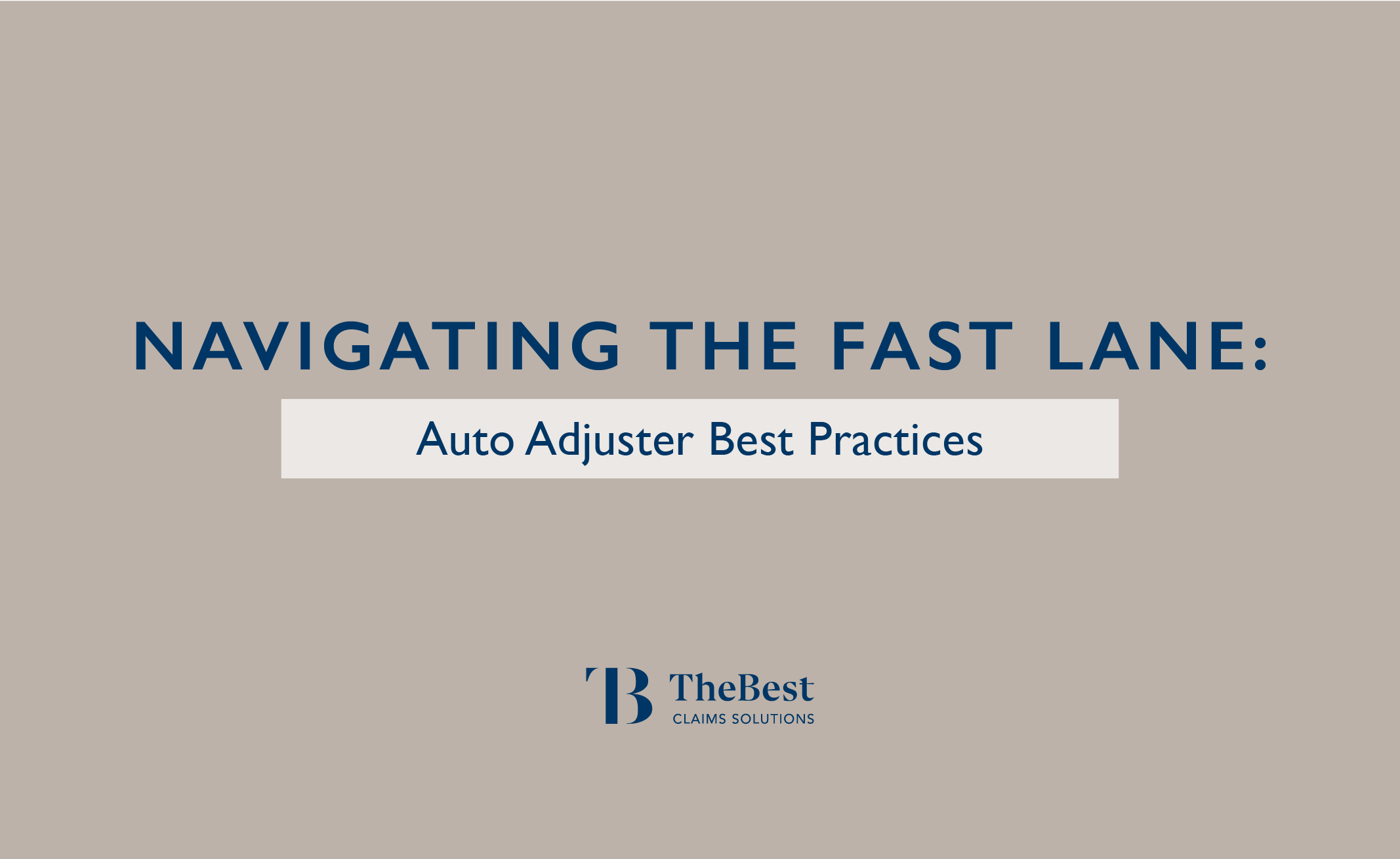In the world of insurance claims, auto adjusters navigate the fast-paced highway of assessments and settlements. Handling a multitude of claims in a single day requires adaptability, efficiency, and a set of skills that go beyond just crunching numbers. Wondering what it takes to succeed in the dynamic field of auto-adjusting?
Rituals for success
When preparing for the day Ashley Grimley, a Claims Team Manager at TheBest Claims, suggests, “Remember that the people you’re helping are often experiencing this for the first time.” To ensure a smooth day, start by going through your inventory and reviewing inspections scheduled for the day. This practice helps you mentally prepare for the tasks ahead.
Building rituals and routines that you can stick to help you stay the course when the work piles up and the claims become chaotic.
Morning inspections are essential
The mornings are a crucial time for setting the tone of the day. Efficiency is the key to success for auto adjusters, especially during inspections. Map out your inspections intelligently to avoid unnecessary travel, saving time and resources. During inspections, strike a balance between being courteous and staying on schedule. As Grimley emphasizes, “Being able to communicate clearly is a key characteristic of a successful adjuster.”
Take your time during inspections; rushing through can lead to oversight and errors. Engage in polite conversation with the policyholder but be cautious not to let it prolong unnecessarily. Keeping a balance between empathy and efficiency is vital.
As you wrap up inspections, communicate next steps clearly with the policyholder. As Grimley advises, “You are their guide, the person who is going to help them navigate this tragedy and come out the other side in one piece.”
Afternoons are for admin
The afternoons are dedicated to administrative tasks and customer calls. Devote specific time to handle calls, as Grimley suggests, “An adjuster can handle calls in-between inspections, but it’s best to dedicate specific time to them.” Efficient scheduling of inspections and a focused approach to calls can significantly impact your productivity.
In between inspections, be mindful of returning calls promptly. This not only demonstrates professionalism but also contributes to a smoother claims process. Insist on clear communication and provide written next steps whenever possible.
Tips from a Professional
What sets a good auto adjuster apart? According to Grimley, it’s understanding the value you’re adding to your policyholders’ lives. “Helping them through that process, helping someone get back to being whole again, is the most rewarding feeling,” Grimley shares.
The anatomy of an all-star adjuster:
Organization: Keep your photos labeled and case documents in order.
Time Management: Efficiently schedule inspections and adhere to a timeline.
Communication Skills: Clearly communicate with policyholders, setting realistic expectations.
Positive Attitude: Approach each claim with optimism and confidence.



